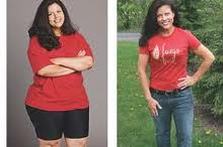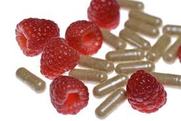The truth about juicing & which juicer is bestBy: Chris Wark, colon cancer survivor since 2003, Chemo-free blogger. Nov 12th, 2013

Juicing is the best way to quickly extract massive amounts of vitamins, minerals, enzymes and phytonutrients from fruits vegetables and get them into your body. Which is why I drank 8 glasses of veggie juice (mostly carrot) every day for several years as part of my anti-cancer diet. Some natural survivors I know drank 5 juices per day. Cancer patients on the Gerson Therapy drink 12-13 juices per day. So what’s the takeaway? Drink lots of fresh juice! Even just 1-2 glasses per day will do you a ton of good.
Now there are a lot of opinions out there about juicing. Most of these opinions are formed by information that did not come from independent research, but from juicer manufacturers who want to convince you to buy their particular juicer because it produces “the best tasting, highest quality, most nutritious juice”. This marketing influences “expert” opinions who in turn influence us. Trustworthy people are sometimes mislead by wrong information. What started out as a simple message about juicing for health has in recent years evolved into a strict set of “juicing rules” that people are obsessing about. So much so, that some people stop juicing (or never start) because they’ve been told that any juicer other than the $2,400 Norwalk Juicer is inadequate and not producing nutritious juice. (The Gerson Institute is partially to blame for this) So before I get into comparing specific juicer models, I want to address a few popular misconceptions about juicing: “Juice must be consumed immediately or it loses all its nutritional value” “High-speed juicing creates heat that destroys the nutrients in juice” “Can you make juice with a Vitamix, Blendtec, Nutribullet, etc.” “What about store bought juice?” “Chris what juicer do you recommend? What is the best juicer?” “What do you think about the (insert juicer name here)?” Continue... Raspberry Ketones- |
If you haven't seen the Dr. Oz segment with the raspberry ketones in it, here it is. See it for yourself and make the choice that best suits you.
These are some of the lies you'll witness on TV
"Eat Cheerios to lower your cholesterol."
"Three or more glasses of skim milk a day are a great way to lose weight." "Splenda is just like sugar and is great for kids." The worst of them all: "There is nothing wrong with High Fructose Corn Syrup. It comes from corn and can actually be good for you." They say that it’s okay because it’s made from corn but the process that’s used in order to create the syrup is done with heavy chemicals that are toxic to your body. It is no longer natural and therefore foreign to your body. You overload your liver with the foreign substances and it’s harder to lose weight. They also say that Corn Syrup is exactly like sugar when they are completely different substances. Regardless, sugar is one of the biggest cause of the heart disease, diabetes, cancer and weight gain anyway. If you want to be healthy and get a handle on your weight, stay away from High Fructose Corn Syrup of any kind. I can see why people are totally confused about healthy eating. I can also see why obesity, heart disease and Type 2 diabetes are at an all time high in this country and in many others as well. People don‘t see the choices. They see what’s advertised in print and TV, and believe that it’s good for them. Even doctors jump on the bandwagon from time to time. Unfortunately, they're not nutritionists. The people that we trust the most are feeding us the wrong information. |
With everything on grocery store shelves containing corn syrup product in one form or another, it’s hard not to get dizzy from all of it. The only real way to avoid it is to buy from reliable markets and/or buy organic and make your meals yourself. Expensive? Sometimes, but it’s worth it when it comes to you, your family, and the cost of medical care. Continued...
|
The importance of fat
Western diets as anywhere between 10-30 parts omega-6 to 1 part omega-3 (10-30:1). What ratio should we be getting? What did our primal ancestors likely eat? Try 1:1.
Monounsaturated Fats Polyunsaturated Fats Essential Fatty Acids Saturated Fats Continued... |
Benefits of butter

Butter is better; better than margarine, better than most oils (coconut oil and olive oil excluded) and it has some great health benefits to boot. I love butter and use it generously when I do use it. I strongly encourage every individual to use butter in all of their cooking needs. Does this scare you? Well it shouldn't! The great "butter controversy" has a long history.
If you go back about 120 years in America’s history, you will see that animal fats and butter were the only available and exclusively used fats in the American diet. With this, there was still a low incidence of heart disease, heart related illnesses, type 2 diabetes and obesity. So if the saturated fat that is found in butter is not the culprit for these diseases, what is?
The answer to that question is right in front of our faces, on television, in most people’s pantries, and in nearly every restaurant out there. Processed and prepackaged foods, refined sugars and flours, and the increase in the use of unhealthy fats that are found in margarine and other oils are what’s really to blame for such trends, not butter! In fact, here are a number of health benefits that we can derive from consuming butter on a daily basis.
• Butter helps to supply your body with essential fatty acids
• Consuming appropriate amounts of saturated fats, such as those found in butter, help in maintaining proper hormone balance
• Organic butter is a great source of heart health as it keeps the arteries supple and flexible due to its high lauric acid content
• Butter from organic grass fed cows encourages healthy glowing skin and hair
• Vitamins K, D, and E are plentiful in butter
• Butter contains antioxidants that help to fight free radicals
• The conjugated linoleic acid that is found in butter has been shown to be an anti-cancer agent while assisting in building muscle and boosting the immune system
• The cholesterol found in organic butter fats has been shown to play a significant role in the development of the brain and nervous system in children
The list can go on and on, but I think you are starting to get the picture that butter is better for
numerous health reasons. With that said, not all butters are created equal. I only advocate
consuming butter that comes from grass fed cows, it's organic, and its antibiotic and hormone
free, and has not been pasteurized. As we all know, pasteurization kills any and all beneficial
bacteria and enzymes that occur naturally and changes the beneficial structure of butter.
If you go back about 120 years in America’s history, you will see that animal fats and butter were the only available and exclusively used fats in the American diet. With this, there was still a low incidence of heart disease, heart related illnesses, type 2 diabetes and obesity. So if the saturated fat that is found in butter is not the culprit for these diseases, what is?
The answer to that question is right in front of our faces, on television, in most people’s pantries, and in nearly every restaurant out there. Processed and prepackaged foods, refined sugars and flours, and the increase in the use of unhealthy fats that are found in margarine and other oils are what’s really to blame for such trends, not butter! In fact, here are a number of health benefits that we can derive from consuming butter on a daily basis.
• Butter helps to supply your body with essential fatty acids
• Consuming appropriate amounts of saturated fats, such as those found in butter, help in maintaining proper hormone balance
• Organic butter is a great source of heart health as it keeps the arteries supple and flexible due to its high lauric acid content
• Butter from organic grass fed cows encourages healthy glowing skin and hair
• Vitamins K, D, and E are plentiful in butter
• Butter contains antioxidants that help to fight free radicals
• The conjugated linoleic acid that is found in butter has been shown to be an anti-cancer agent while assisting in building muscle and boosting the immune system
• The cholesterol found in organic butter fats has been shown to play a significant role in the development of the brain and nervous system in children
The list can go on and on, but I think you are starting to get the picture that butter is better for
numerous health reasons. With that said, not all butters are created equal. I only advocate
consuming butter that comes from grass fed cows, it's organic, and its antibiotic and hormone
free, and has not been pasteurized. As we all know, pasteurization kills any and all beneficial
bacteria and enzymes that occur naturally and changes the beneficial structure of butter.
By Sally Kuzemchak, RD
For years you've been told that the saturated fat you eat is public enemy No. 1 in the battle against obesity and heart disease. Turns out, it may actually be -- gasp! -- good for you. Continued...
For years you've been told that the saturated fat you eat is public enemy No. 1 in the battle against obesity and heart disease. Turns out, it may actually be -- gasp! -- good for you. Continued...
4 tips to make your breakfast more effective for your weight loss goals
- Add high-quality complete Protein
- Embrace Fiber
- Include Vegetables
- Most importantly, include fat
The problem with CrossFit
While all exercise can create injury, Geier sees more injuries with CrossFit because of the high-speed, high-impact approach. Certain exercises implemented by CrossFit (Olympic lifts, specifically) are meant to be done in moderation. But CrossFit preaches pushing to the edge of every set, every rep, until there’s nothing left in the tank. And while training to muscular failure is notoriously debatable, one thing is certain: Regularly pushing your body to failure can lead to serious health risks, like rhabdomyolysis. Continued...
Keeping your New Year's resolutions on track

Behavior experts say that it takes about one month to form a new habit, and many people try to create (or break) habits at the start of each year. With the right attitude and focus, you can stick to your New Year's resolutions and achieve long-term success. Here are 30 daily tips that will help you do exactly that. Continued...











